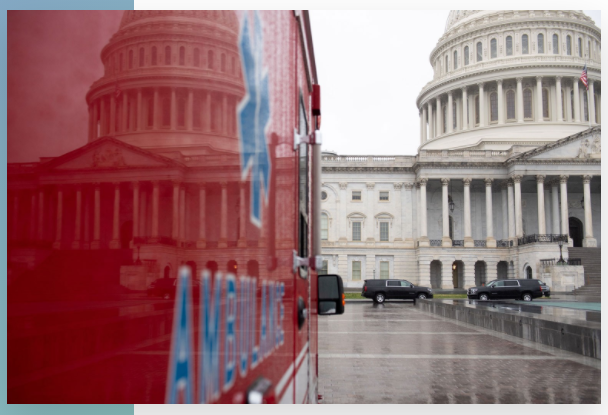Media
Music Groups Again Pressure Congress For Pandemic Relief: ‘More Must Be Done’

A coalition of music industry groups including the RIAA, NMPA and Artist Rights Alliance today (Nov. 23) sent the latest in a string of recent letters to congressional leaders, urging them to provide additional government assistance to music industry workers impacted by the coronavirus pandemic.
Specifically, the letter calls on Congress to renew and extend several forms of federal pandemic unemployment assistance; pass the RESTART Act federal loan program; "fix" the CARES Act to make mixed earners eligible for unemployment assistance; expand and pass the Save Our Stages Act for small venues and multi-use publicly owned venues; help workers keep their job-based healthcare plans by expanding employer retention tax credits and passing a 100% COBRA premium subsidy; and pass the Performing Artist Tax Parity Act and the HITS Act, which change tax codes to benefit performers and recording studio workers, respectively.
"There is no denying that COVID-19 has truly tested the nation, and it has had a devastating effect on our country’s music industry," the coalition said in a joint statement. "The live music business -- once a sign of a thriving community and a draw to our cultural and commercial centers -- has gone tragically silent. The music community remains grateful for Congress’s bipartisan relief efforts earlier this year, but more must be done soon to avoid a level of loss that could devastate artists, musicians, engineers, producers, venues, and everyone in the music industry for a generation."
The coalition has been continuously pressuring Congress for music industry relief through several letters sent since the start of the pandemic, and has also organized the centralized aid resource MusicCovidRelief.com.
Read the new letter in its entirety below.
Dear Leader McConnell, Speaker Pelosi, Leader Schumer and Leader McCarthy,
There is no denying that COVID-19 has truly tested the nation, and it has had a devastating effect on our country’s music industry. The live music business – once a sign of a thriving community and a draw to our cultural and commercial centers – has gone tragically silent. The music community remains grateful for Congress’ bipartisan relief efforts earlier this year, but more must be done soon to avoid a level of loss that that could devastate artists, musicians, engineers, producers, venues, and everyone in the music industry for a generation.
First, Congress must renew and extend existing benefits that have proved indispensable, including the weekly funding provided through Federal Pandemic Unemployment Compensation, Pandemic Unemployment Assistance, and Pandemic Emergency Unemployment Compensation. Congress must also act to pass the RESTART Act, to build on the short-term relief provided by the Paycheck Protection Program.
Second, Congress must fix an unintended error in the CARES Act by passing the Mixed Earner Pandemic Unemployment Act. Mixed earners, or gig workers with a minimum amount of W-2 income, have been excluded from Pandemic Unemployment Assistance, and overly burdensome PUA documentation requirements are out of step with the workplace realities of the gig economy.
Third, with no clear direction on when safe public gatherings may resume, Congress must expand the current form of the Save Our Stages Act and pass it to provide sufficient assistance for small venues and multi-use publicly owned venues. 77% of people in the live events industry have lost 100% of their incomes, including 97% of 1099 workers. These people work at venues of all sizes and in a variety of capacities – whether it be full-time, part-time, or on the side as a gig worker. With uncertainty surrounding the resumption of live events, most of these workers are still struggling to make ends meet. Providing direct financial relief to the workers of all venues is critical to keeping local communities afloat. Indeed, dollars spent to keep venues open have a multiplier effect, as live music brings patrons to hotels, restaurants, and other small businesses that are also struggling to survive. Expanding Save Our Stages to include all different types of live events workers – and not excluding them simply for where they work – will help revitalize our economy at the ground level.
Fourth, Congress must do more to ensure workers can keep their job-based healthcare plans during this pandemic. We believe Congress should expand employer retention tax credits and pass a 100% COBRA premium subsidy to ensure that job disruptions through no fault of their own don’t cost Americans their health as well as their livelihoods.
Finally, Congress must ensure that tax relief reaches musicians and workers in the performing arts by passing the Performing Artist Tax Parity Act and the HITS Act.
Like many in 2020, our community has come together to speak with one voice to ensure that we all can enjoy better days in the future together. We hope that with your leadership, Congress, in the upcoming lame duck session, will take this clear opportunity to save American music, culture, and countless small businesses. Thank you for your consideration.
Academy of Country Music (ACM)
Artist Rights Alliance (ARA)
Broadcast Music, Inc. (BMI)
Christian Music Trade Association (CMTA)
Church Music Publishers Association Action Fund
Country Music Association (CMA)
Gospel Music Association (GMA)
Music Artists Coalition (MAC)
Music Managers Forum - US (MMF-US)
National Music Publishers Association (NMPA)
Production Music Association (PMA)
Recording Academy Recording Industry Association of America (RIAA)
SESAC Society of Composers & Lyricists
Songwriters of North America (SONA)
SoundExchange Southern Gospel Music Guild (SGMG)
The American Society of Composers, Authors & Publishers (ASCAP)
The Living Legends Foundation, Inc
The Rhythm & Blues Foundation, Inc
Via Billboard - read HERE.
